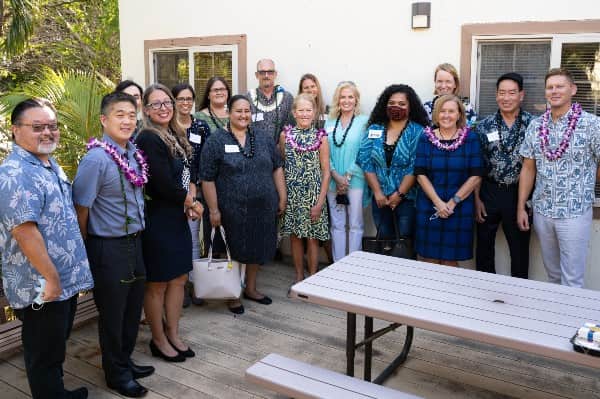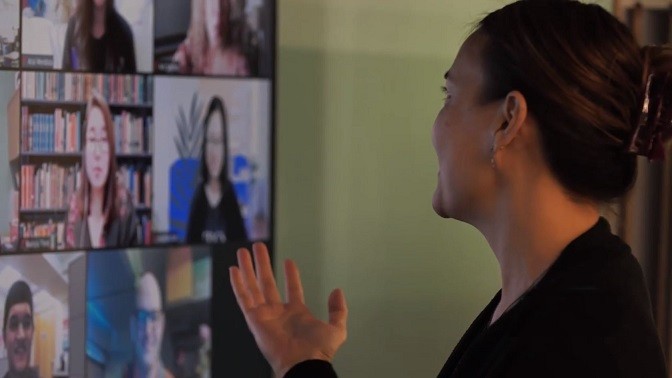
The gathering celebrated the end of a long journey—and the beginning of so many others.
In a special ceremony on campus recently, some of the members of the inaugural cohort of Chaminade’s Doctorate of Education in Organizational Leadership for Adaptation and Change joined with faculty members, administrators and others to mark the much-anticipated kickoff of the new program.
Kumu Keahi Renaud delivered a Hawaiian blessing followed by Father Marty Solma, SM, Chaminade’s chaplain, who led attendees in prayer. Several Chaminade administrators then took to the microphone to touch on just how much planning and commitment it took to make the day a reality.
Speaking to incoming cohort members, Chaminade President Dr. Lynn Babington said that the new doctoral degree program is “all about leadership.” She continued, “You come from such different perspectives. The richness of your learning together will be something very, very special.”
Indeed, the 33 members of the program’s first class hail from a diversity of backgrounds and professional interests. Dr. Hans Chun, director of education leadership programs, added there was particularly strong interest in the program in Hawaii. The majority of participants are in the islands.

The first term for the doctoral students, who will be learning fully online, begin July 6.
At the ceremony, students were given a commemorative coin with the Chaminade seal to mark the special day along with a kukui nut lei, signifying wisdom and enlightenment. Dr. Dale Fryxell, School of Education and Behavioral Sciences dean, also dedicated a turtle-shaped bench honoring the launch. He said the turtle represents knowledge and he hoped the symbolism inspired the doctoral students.
Dr. Lance Askildson, provost and vice president for Academic Affairs, said the journey students are embarking on is an exciting—and important—one. The program’s inaugural cohort will learn, work, and grow together over the course of three years, the expected completion time for the degree.
Askildson said the doctoral program is focused on leadership development across disciplines.
“But it’s also about leadership by some very courageous faculty and administrators—to bring this program forward after a number of years of advocacy,” Askildson said, speaking to the group. “The legacy that underlies … Chaminade University is of a brand of education holistic in nature, dedicated to educating the whole person, but driven by something more than just a transaction of knowledge.”
He said that individualized, whole-of-person experience is integrated into the program’s very curriculum.
And that, he added, is exactly what attracted so many professionals to the program.
To those incoming students, he said, “I applaud you and I congratulate you.”








